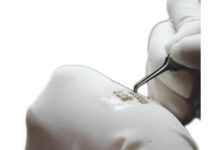Dmitry Medvedev remained to work in the government just a day. His career in the Cabinet of Ministers started in November 2005, when he became the first Deputy Chairman of the government – with the task to oversee the priority national projects. And then he came to the presidency, leaving the post of Prime Minister. In 2007 his candidacy for the presidency and supported the “United Russia” which he headed five years later and heads are still, and the other party, and incumbent President Vladimir Putin. Medvedev was elected President in March 2008 and after the 2012 elections and Putin’s return to the highest post there was a rotation, and then Medvedev for the first time headed the government.
Not a reformer
at the time of appointment of Medvedev Chairman of the government of the Russian economy emerged from the financial crisis that began in 2008-2009, but fell into a semantic dead end. It became clear that the pre-crisis model of growth based on consumer demand, has exhausted itself. Required the transition to the investment model, it was necessary also to carry out reforms to reduce the state’s share in the economy, improve the investment climate.
Partially have such problems in the program of President Medvedev. But as Prime Minister, big reforms he could do and could not. The government of 2012 have been an ambitious task. After returning to the Kremlin in 2012, Putin issued the may decree that the officials had to increase the share of investment in GDP, labor productivity, simplify business, increase salaries, etc.
But serious reform has not been conducted, said the chief economist BCS Global Markets, Vladimir Tikhomirov. And in 2014, the Russian economy experienced a perfect storm of falling oil prices (from $to 115.2 per barrel in June 2014 to $45,1 per barrel in January 2015, and early 2016 – even to the lowest level since the early 2000s gG., $27,5), the imposition of sanctions due to the annexation to Russia of the Crimea and the Russian retaliatory sanctions against the West, the devaluation of the ruble (by the end of 2014, the dollar and the Euro has declined by about half). Already in 2014, economic growth slowed to 0.7%, while in 2013, it was an acceptable 1.8% and in 2012 – by 3.7%, while there was a record outflow of capital and foreign direct investment plunged to the lowest for the entire post-Soviet period. In 2015, the GDP increased to 2.3%, and continued in this situation until the beginning of 2016.
Stabilizer
the Crisis has hit people: devaluation, coupled with the limited supply of food due to retaliatory sanctions provoked an inflationary shock – acceleration of price growth to 11.4% by the end of 2014, Real disposable incomes of Russians have started to fall already in 2014, next year, the fall accelerated to 3.2% and 5.9% in 2016, to growth, they moved only in 2018 – and it has grown only 1.1%. But unlike 2008-2009 began rise in oil prices has not led to economic growth. And authorities had to switch to fiscal consolidation – Federal expenditures decreased from 5% to 10% until 2018, when it approved a new budget rule (and apply it was back in 2017).
the introduction of the new rules, macroeconomic stability and the creation of reserves actually became the only achievement of the government Medvedev 2012-2018, says Tikhomirov. But it was quite an achievement, not team President of the government, and the bloc [economic and financial], who worked directly for the President, he said.
the Only success of the authorities during the Prime Minister Medvedev began macroeconomic reforms: the transition to inflation targeting, stabilization of budget expenditures and the new budget rule listed and a former chief economist of the EBRD, Sergei Guriev. Officials relied on an overly rigid fiscal rule and maintained optimism in the hope that a programmatic approach and point of the reform is still willing and in these conditions, economic benefits, according to Natalia Akindinova, Director of the development Center of the Higher school of Economics. Although the government has achieved fiscal stability, virtually immune to short-term risks economic growth remains at minimal levels, and the income growth did not resume, she laments.
Indecisive
officials of the government and the presidential administration said that the crisis gives a chance for reform. But chance has not been taken. And in the end, both times, the government Medvedev with the implementation of the decrees of Putin in 2012 and 2018, failed, says Tikhomirov. The government all this time, the plans were ambitious and expectations were higher than what was allowed the economy continues Akindinova. In addition, leverage was the lack of a constantly developed program of development, many of them were even strategically correct, but a large proportion of the public sector, political imbalance – all this prevented implementation of the plans, she said.
the Government was made up of good people who simply did not have active management, says Tikhomirov. Almost all of Medvedev’s meeting ended in nothing, remember two Federal officials, the Prime Minister did not like to take responsibility for difficult decisions, so all the key reforms had to be agreed directly with the President.
Key request was from the President agree with former Federal official. For example, the President of Rostec Sergey Chemezov asked Putin to appoint “RT-invest” without competition, the system operator charging trucks “Plato”. And then the government cancelled the tender and appointed “RT-invest”.
So it was with the tax reform that the government has been discussing for several years: all the discussion in the government was reduced to the confrontation of financial and social units that could not agree whether to carry out a tax reform to lower the rate of insurance contributions while increasing VAT. But in the end the government decided to increase VAT from 18 to 20% and to compensate for this increase by reducing the burden on social security contributions. Medvedev has not played a strategic role in the system of government, but was the right hand of Putin, that the government was controlled by the President, considers Akindinova. Determination on decision-making it is largely not enough, she said.
Unambitious
Especially apparent weakness of the government of Medvedev is manifested in 2019, when the authorities began to implement the new national projects of the President. Under the new decree Putin may have been developed projects with a total value of 25.7 trillion rubles., of which 13.2 trillion will spend the Federal budget, an additional 4.9 trillion – regions. The authorities expect that in response to 7,5 trillion rubles will be invested in the business.
some of the money for national projects authorities seized from citizens and businesses, increasing by 2019. VAT from 18% to 20%. The decision cost the economy – risks of accelerating inflation forced the Central Bank to tighten monetary policy. But despite high expectations, the year (2019) to disperse the economy, such money has failed: the government feared did not distribute public money, and therefore hindered the cash execution. In the end, the Central Bank for low inflation and slow budget spending had five times to reduce the key rate, and implementing national projects tried to fulfill the annual plan for the last few days of the year. For example, one-fifth of the annual budget for the national project “Digital economy” performers had to spend 28 to December 31, 2019
Probably the logic of the resignation of the government was how to replace Medvedev as a more ambitious and proactive Manager who will be able to organize a breakthrough of the economy on POPsthis database of macroeconomic stability, accumulated reserves and planned projects, Tikhomirov concludes.
Choice of Putin for a long time did not have to wait. Immediately after the resignation of the government of Medvedev, the President offered the post of Prime Minister to the head of the FTS Mikhail Mishustin, and even earlier announced that Medvedev sees as his Deputy in the security Council, such a position will be created.
Dependent
First Vice-President of the Center for political technologies, Alexei Makarkin, insists that Medvedev remains in the political elite, but doesn’t think he will again become President.
the head of the program “Russian domestic politics and political institutions” of the Moscow Carnegie center Andrey Kolesnikov has a different opinion: “After this fundamental shaking up of the government and the political system no one does not negate the possibility that Medvedev will become Russia’s President again – assuming the sewer of discontent with the economic situation in the country.”
“Medvedev – the figure is heavily dependent, feeling a hierarchy of power and not much initiative as a whole. Similarly, he was President – a kind of hardware by the President. Although he tried to behave like an independent figure – and sometimes he could do it. He wanted to be President and had even then, in the presidential time, some chances to continue working in this status, because his approval rating in the period of the presidential term has consistently grown,” – said Kolesnikov. A new opportunity to take this position will have Medvedev if Putin will head the state Council in its new form, which is not yet described. “After all, who among us is responsible for everything bad? The President and the Prime Minister. A national leader, as head of the state Council, is responsible for all the good,” explains Kolesnikov.
But if the design with Medvedev as Presidentyenta again, it will be much more dependent, dependent, fearful, and ceremonial. Compared to 2008, now the situation is different in the country. The regime has become more authoritarian, it has become more tightly marked and labeled with the name of Putin. The President in the “Republic of Putin” is a figure of performance that’s the main thing, the expert concludes.
Federal career of Dmitry Medvedev
1999 November : Deputy Prime Minister Dmitry Kozak, the head of the government under the Prime Minister Vladimir Putin.
1999, Decembers – Deputy head of the administration of acting President Putin
2000, February, head of the electoral headquarters of the presidential candidate Putin.
2003, October – the head of administration of President Putin
November, 2005 first Deputy Chairman of the government
2007 December – the candidate in presidents of Russia.
2008 March – elected President of Russia in may there was the inauguration.
2008, August announced the military operation to force Georgia to peace (“five-day war”)
September, 2008 – approved the concept of reform of the Russian Armed forces.
2008 November – proposed amendments to the Constitution to increase the presidential term from 4 to 6 years, in December signed a law
November, 2009 signed a Treaty on the Customs Union of Belarus, Kazakhstan and Russia
2010, April signed a Treaty on reducing strategic offensive weapons with the United States for a period of 10 years.
2010, September signed the Federal law on the establishment of “SKOLKOVO”
2011, February has signed the law on renaming of militia in police
2011, September – proposed Prime Minister Vladimir Putin as a presidential candidate
2012, may – approved by the Prime Minister, then elected Chairman of the party “United Russia”
2018, may – approved by the Prime Minister
2018, June – introduced a bill on pension reform in the Duma.
2020, January has resigned as the Prime Minister President Putin proposed to create a specially for Dmitry Medvedev as Deputy Chairman of the Russian security Council
“the Problem for Medvedev is that he tried to become independent only in the second half of his presidency. Among the decisions include the dismissal of Moscow mayor Yuri Luzhkov because of the loss of trust, the appointment of several generals of the interior Ministry, in foreign policy – that the situation around Libya went strongly towards the West, etc., – says Makarkin. – Then he apparently had plans to go for a second term. A turning point can be called a big press conference in the spring of 2011, where as many expected, he will announce that he will run for a second term”.
But the plans Medvedev broke off Putin, then formed the popular front, says Makarkin. Its membership included a significant proportion of people who hoped Medvedev as President. Then it became clear that the second presidential term, he will not, and Medvedev agreed to leave quickly, for which he received the position of Prime Minister, says Makarkin.
pension reform was not a decision Medvedev, said the analyst, more training and the introduction of highly unpopular bill was a condition that he will remain Prime Minister. If he disagreed, he would have then lost the post of Prime Minister, says Makarkin. And after the pension reform by Medvedev even more distanced his party “United Russia”, the Chairman of which he was chosen. “United Russia” before anysludge call themselves the party of Putin, and now – even more so, despite the fact that formally, Medvedev is still Chairman, says the analyst.
Medvedev remains in the political elite. But it is unlikely that he will again become Prime Minister or President, Makarkin said Kolesnikov. The public will not understand: it is still associated with the pension reform, he concludes.
infographics photos “RIA Novosti”, TASS, Vedomosti









